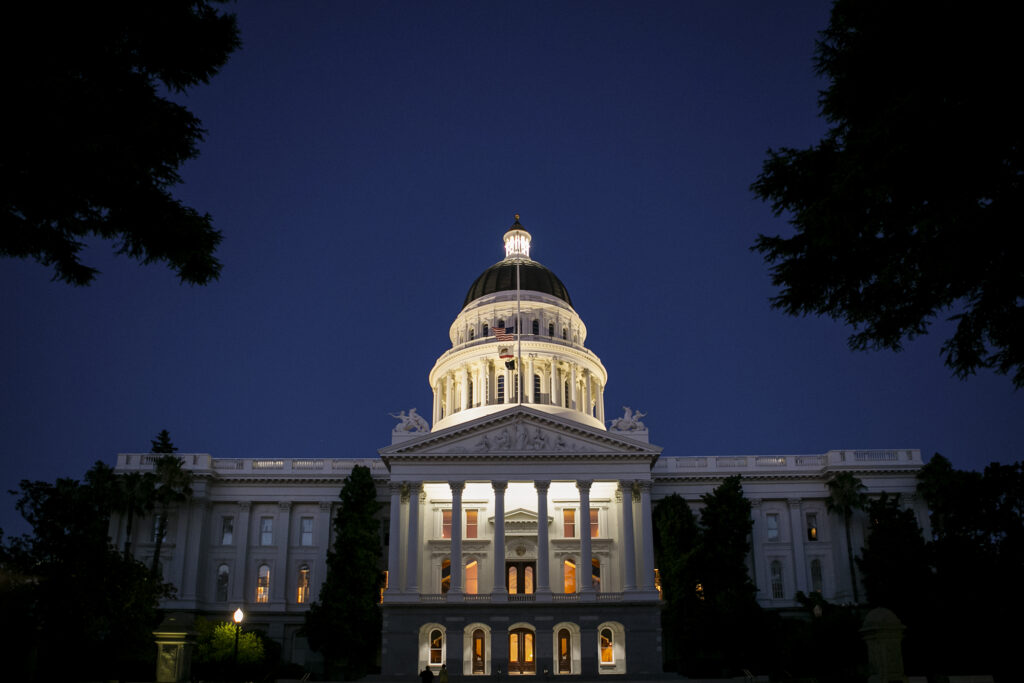In summary
California, once a leader in government transparency, has fallen into secrecy and opacity, making it difficult for the public to know what's going on.
California was once a national leader in increasing government transparency, requiring state and local agencies to conduct business in public meetings, and providing Californians with easy access to public records.
However, in recent years, transparency has been declining. Congress has fallen into a state of semi-secrecy, especially regarding the national budget, but also other major legislation. Construction projects have relocated the legislative branch from the Capitol to a nearly impenetrable building, making direct contact more difficult.
Behind closely guarded doors, decisions are made, deals are struck, and the results are simply announced and sometimes enacted with little meaningful discussion. In recent years, governors and legislators have used budget “trailer bills” to pass major policy changes with little or no notice.
The slide into secrecy coincided with the emergence of one-party dictatorships, for obvious reasons. The ruling Democratic Party is able to ignore the media and the public because they know their numbers evade accountability.
State government decision-making is increasingly opaque, exacerbated by the fact that its data systems are often clunky and provide outdated information. Cal-Access, a system that includes political information such as campaign finance and lobbying spending, is particularly difficult to use, and efforts to improve it have been sporadic.
The project to modernize the state's information technology has been in the works for decades, costing billions of dollars and experiencing numerous delays and failures.
Representative of the data shortcomings is the California Financial Information System, which has the catchy acronym FI$Cal. It was conceived many years ago as a comprehensive financial management tool for all state government agencies, but is still only partially operational.
One aspect of FI$Cal's situation is California's chronic delays in reporting its financial health. Secretary of State Myra Cohen recently released the state's Comprehensive Financial Report. This is an approximately 400-page document that is required by law to be produced every year. This is a report for the 2021-22 fiscal year, which should have been published a year ago, but was not published because FI$Cal and other data systems were unable to produce timely and accurate numbers. Ta.
Cohen acknowledged his company's delays in his cover letter, stating, “This is the fifth year in a row that California has released financial statements well beyond the regulatory deadline of nine months from the end of the fiscal year.” He blamed it on $Cal and other technical issues. Disadvantage.
The state auditor's office, which is responsible for reviewing annual financial reports, has been highly critical of FI$Cal's implementation in a series of audits of the Legislature. Three years ago, the bureau issued a report that said deficiencies in FI$Cal chronically delayed the state's annual economic reports and that the delays hindered the state's ability to borrow money and fulfill funding agreements. Announced.
Apparently, little has happened since then to correct that embarrassing failure. The financial report for the 2022-23 financial year is due to be released this month, but this too will likely be delayed by a year.
California's transparency flaws have not gone unnoticed outside the state. This week, Truth in Accounting, a group that monitors financial information management across the country, released a 50-state scorecard on transparency, and California received the third-lowest score.
States were rated based on issues such as the timeliness and accuracy of financial reporting and candor, or lack thereof, in reporting financial obligations such as the unfunded liability of public pension systems.
A perfect score would have been 100 points. New York ranked first with his score of 86, followed by Wyoming and Hawaii. California's score was 48, ahead of only Illinois and Georgia.
That's embarrassing.
Source link


